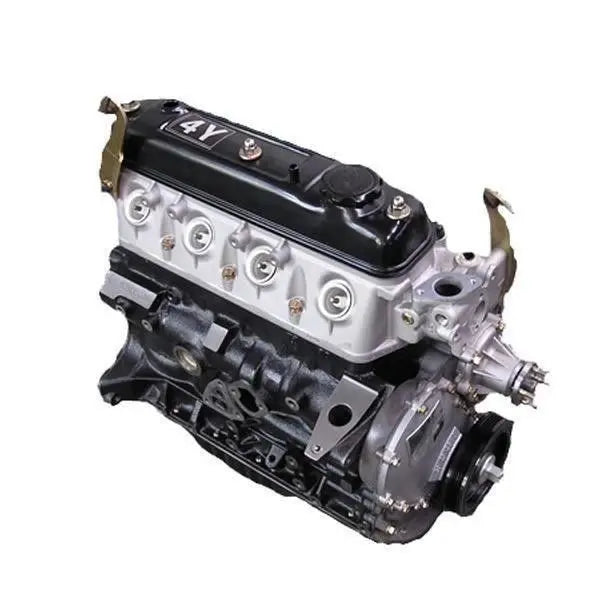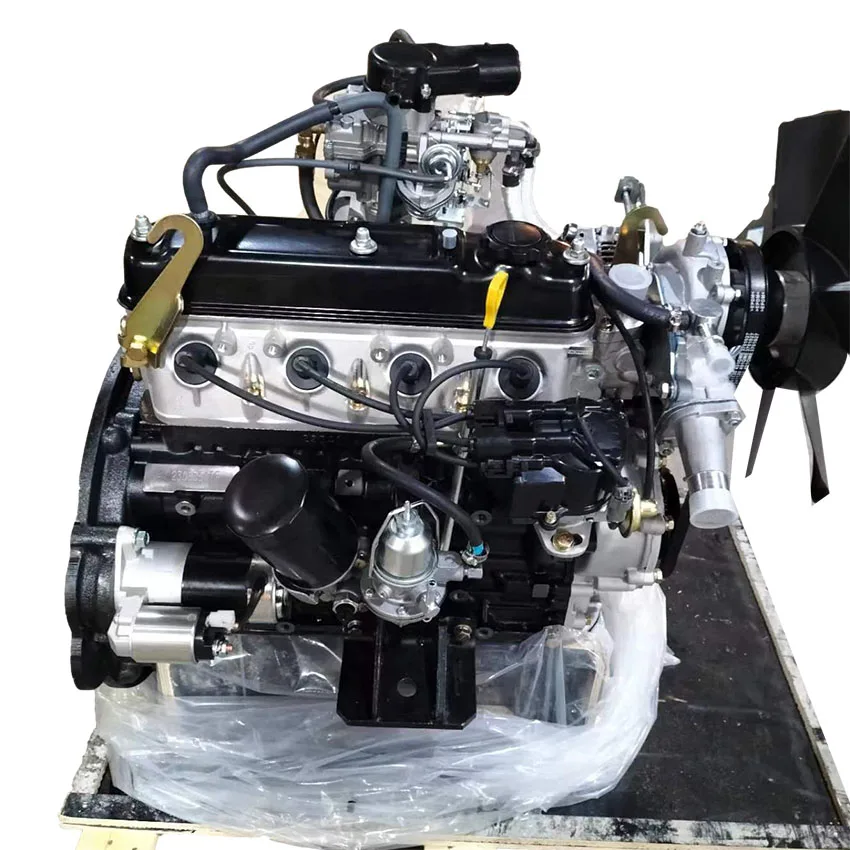How the 4Y Engine Powers Your Vehicle with Efficiency and Reliability
How the 4Y Engine Powers Your Vehicle with Efficiency and Reliability
Blog Article
Discovering the Different Sorts Of Engine: Which One Fits Your Needs?
In the pursuit to identify one of the most ideal engine type for your specific requirements, it is important to examine the distinct qualities and benefits of each alternative readily available. Interior burning engines proceed to dominate as a result of their integrity, while electric engines are acquiring grip for their sustainability. Hybrid engines use a versatile compromise, and diesel motor stand apart for their power popular applications. In addition, alternative fuel engines present innovative solutions, albeit with certain limitations. Understanding your priorities will contribute in this decision-making procedure, leading to an expedition of variables that may affect your option.

Inner Combustion Engines
Internal combustion engines (ICEs) are the foundation of contemporary transport, powering a substantial array of automobiles from vehicles to airplanes. These engines operate the concept of converting gas into power via a series of controlled surges within a burning chamber. The most usual kinds of ICEs include fuel engines, diesel engines, and rotating engines, each developed to fulfill particular efficiency and performance requirements.
Fuel engines typically use spark ignition, while diesel engines depend on compression ignition, leading to unique distinctions in fuel effectiveness and power output (4y engine). Rotating engines, or Wankel engines, offer a portable design and smooth procedure, however are much less commonly used in mainstream applications
ICEs have actually undergone substantial advancements in innovation, including the introduction of turbocharging and gas injection systems, which improve total effectiveness and performance. Regardless of their effectiveness renovations, ICEs deal with increasing scrutiny due to their environmental impact, especially pertaining to greenhouse gas emissions. As the vehicle market evolves, the future of ICEs stays a subject of dispute, balancing performance, performance, and ecological considerations. They continue to play a vital role in global transport facilities.
Electric Engines
As concerns concerning ecological sustainability and fossil gas dependence grow, electric engines have emerged as a compelling choice to interior burning engines. These engines make use of electric motors powered by batteries or gas cells, giving a cleaner and extra effective means of propulsion.
Among the main advantages of electrical engines is their minimized discharges. Unlike conventional engines that melt fossil fuels, electric engines generate no tailpipe emissions, significantly decreasing air contamination and contributing to improved public wellness. Furthermore, the efficiency of electrical motors typically surpasses that of internal burning engines, transforming a greater percentage of energy from the power resource into functional energy for motion.
Electric engines are also remarkable for their peaceful procedure, making them suitable for urban atmospheres. 4y engine. The simplicity of their style causes fewer relocating parts, which can cause reduced upkeep costs and boosted reliability gradually
Nonetheless, difficulties continue to be, including battery production influences, charging facilities, and array limitations. In spite of these obstacles, the expanding investment in electric lorry technology and sustainable power resources factors towards a promising future for electrical engines, placed to play an essential function in the change towards lasting transportation.
Hybrid Engines
Blending the benefits of both electrical and traditional interior combustion engines, hybrid engines stand for a functional solution in the quest for effective and lasting transportation. These engines integrate a gas or diesel motor with an electrical motor, permitting for improved fuel effectiveness and lowered exhausts compared to conventional vehicles.
Hybrid engines operate in several settings, making use of the electrical motor for low-speed driving and the inner burning engine for greater rates or when even more power is required. This vibrant operation not just improves gas economy however likewise adds to a smoother driving experience. Regenerative braking is another crucial feature, capturing energy typically lost throughout stopping and redirecting it to recharge the battery.

As customers significantly focus on eco-friendliness, hybrid engines stick out as a functional option, using an effective balance of efficiency, effectiveness, and ecological responsibility. This flexibility makes them ideal for metropolitan commuting and long-distance traveling alike.
Diesel Engines
Performance and power are characteristics of diesel motor, official source which have long been preferred for their toughness and fuel economic situation. These engines operate the concept of compression ignition, where air is compressed to a heat before fuel is infused, igniting it without the demand for stimulate plugs. This process allows diesel motor to achieve greater thermal efficiency compared to fuel engines, equating right into better fuel mileage and lower carbon dioxide discharges.
Diesel motor are especially fit for sturdy applications such as trucks, buses, and industrial equipment, where torque and sturdiness are critical. Their layout normally consists of stronger components to endure the higher stress produced throughout operation, leading to longer solution life and minimized upkeep costs.

Alternate Gas Engines
While diesel engines have lengthy Home Page dominated the landscape of heavy-duty source of power, alternative gas engines are getting grip as viable choices for a much more sustainable future. These engines make use of a selection of fuels, such as compressed gas (CNG), ethanol, gas, and hydrogen, aiming to decrease greenhouse gas emissions and dependence on fossil fuels.
One considerable benefit of alternative gas engines is their possible to reduced carbon More Info impacts. As an example, CNG engines send out less pollutants contrasted to conventional diesel engines, making them suitable for city transit systems and fleets seeking to enhance air high quality. Ethanol, originated from biomass, not only lowers discharges but additionally sustains agricultural economic climates.
Hydrogen gas cells represent an innovative development in this realm, providing zero-emission power through a chemical reaction between hydrogen and oxygen. Difficulties such as facilities advancement and manufacturing costs continue to be challenges to prevalent adoption.
Verdict
To conclude, choosing the suitable engine kind requires mindful consideration of certain needs and preferences. Interior combustion engines use integrity, while electrical engines prioritize sustainability and reduced upkeep. Hybrid engines integrate the benefits of both, boosting performance, whereas diesel engines provide exceptional power and torque for sturdy applications. Different gas engines present eco-friendly alternatives, albeit with possible framework difficulties. Eventually, an extensive assessment of driving habits and environmental values will certainly assist in an educated choice relating to engine option.
Hybrid engines supply a versatile compromise, and diesel engines stand out for their power in requiring applications. The most typical types of ICEs include fuel engines, diesel engines, and rotating engines, each developed to meet certain efficiency and effectiveness needs.
Unlike traditional engines that melt fossil fuels, electric engines generate no tailpipe emissions, substantially reducing air pollution and adding to improved public wellness.Crossbreed engines operate in numerous modes, making use of the electrical motor for low-speed driving and the interior burning engine for higher rates or when more power is required. Crossbreed engines combine the benefits of both, enhancing efficiency, whereas diesel engines provide superior power and torque for durable applications.
Report this page